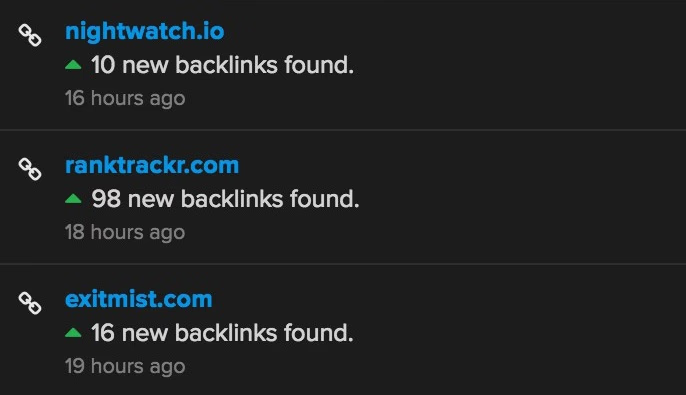Leveraging Your SEO Efforts: 7 Key Strategies
All winners know that — to use a cliche — success is a journey. In other words, just because you’re winning today, you won’t be winning tomorrow if you take your foot off the gas. SEO is the same. Unless you track, tweak, and adapt, you’ll find it hard to defend your position in the SERPs.
Fortunately, modern website performance tracking tools make it easier than ever to analyze your long-term SEO efforts.
Tracking itself has evolved in recent years. SEO is no longer just about tracking your backlinks and rankings; it’s also about realizing the importance of segmentation and getting more insights from the data provided by other analytics apps.
Besides using other advantages of modern SEO tools (such as automatic keyword discovery and smart notifications), segmentation is the key ingredient in evolving SEO, so it will be one of the main focuses of this article. Once you understand how it can help you, you will be able to catapult your business on top of the mountain.
Let’s take a look at 7 ways to leverage your SEO efforts!
1. Automatic Keyword Discovery
What if you could come across new keyword opportunities automatically, without having to manually type and look at Google’s Search Console tool?
Your website is already ranking, and that’s awesome. But wouldn’t it be amazing if you could use a tracking tool to automatically find brand new keywords to add to your selection as your website grows organically and new opportunities show up? This saves you time on doing manual research.
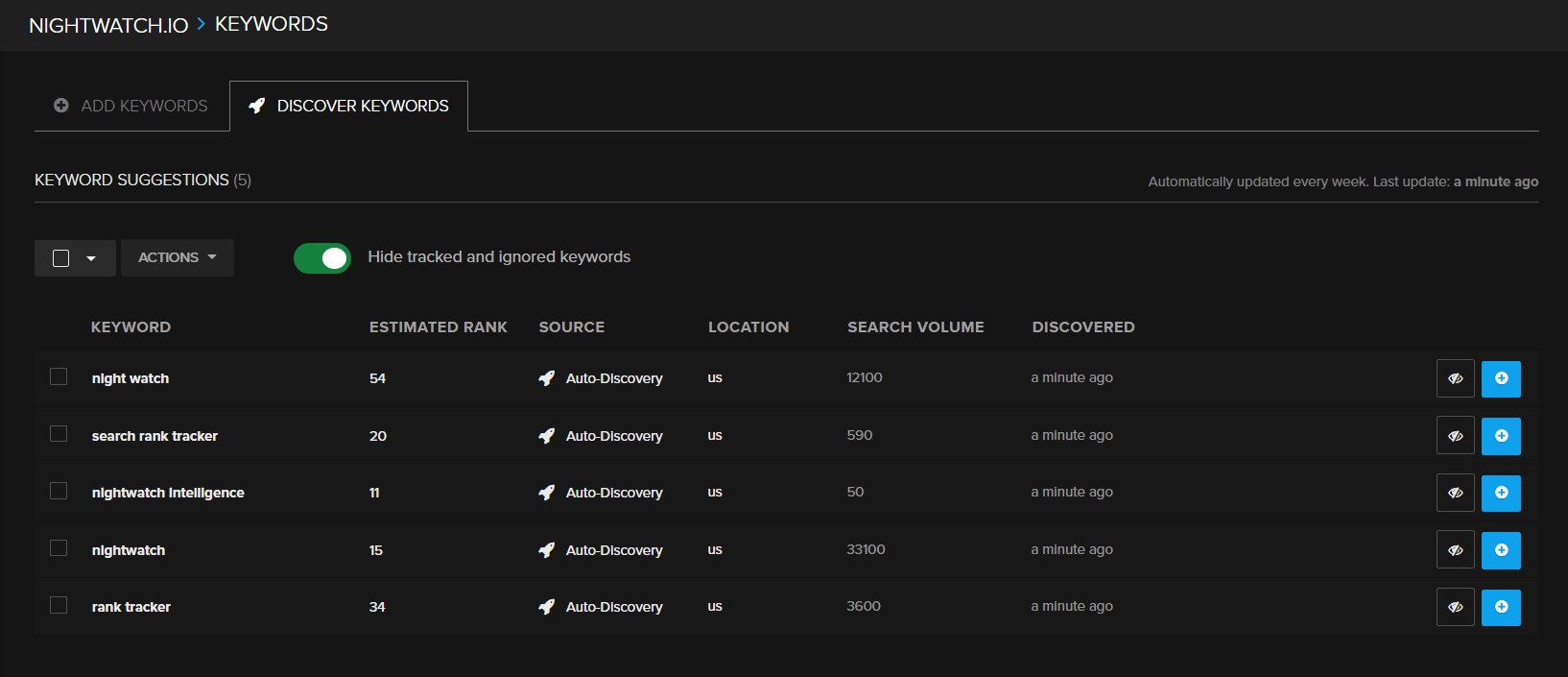
An ideal tracking tool should automatically look for new keyword opportunities for your site. When it finds them, it should send you a notification to decide if you wish to track your rankings for the suggested keywords.
2. Keywords Segmentation
When people talk about SEO, they often talk about rankings. Rankings are important, but something that often gets neglected is segmentation of your keywords.
Segmentation allows you to drill deeper into the data, in order to find correlations between groups of keywords that have certain characteristics. It is the one most important thing for evolving SEO. It’s the method that all biggest websites are using to understand the search ecosystem and dominate search engines.
Segmentation means to separate, for example, short-tail keywords from long-tail keywords, which gives you more precise insights into how each keyword is performing. If your long tail keywords are outperforming your short ones by a million miles, you can start to create more high-quality content around the right keywords to attract even more customers.
You can segment your keywords in various ways:
- By tracking location
- By type of a keyword, for example, branded keywords and non-branded keywords
- By volume, for example, high-volume (or short-tail keywords) and low-volume (or long-tail keywords)
Imagine: you are running an online fashion store Men’s Fashion Paradise selling men’s apparel in various cities in America. Recently, you learned about this method and started to segment your keywords so you could know how different categories of keywords are performing.
After using your SEO tracking tool, you discovered that keywords related to shoes are outperforming rankings of other keywords, for example, related to jackets, even though they drive smaller ROI. This made you realize that perhaps you should invest more time in optimizing the website for jackets, and especially, the keywords for which you’re already ranking well.
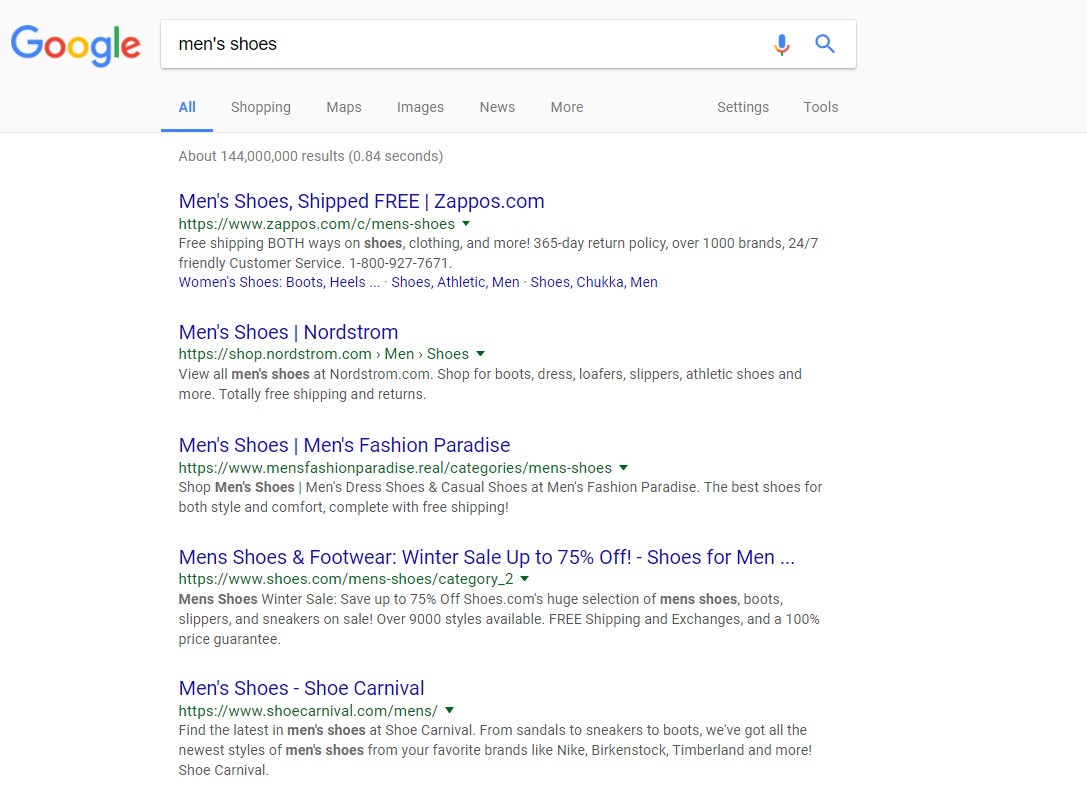
At first, you didn’t notice any trends because you were aggregating your keywords by their position in the SERPs, which weren’t impressive. But once you started segmenting the keywords by their characteristics, such as shoe keywords and jacket keywords, a few trends emerged. Additionally, you noticed that local keywords were ranking very highly in the city of Minneapolis — you were on page 1 of the search listings and ranking on local map pack, in fact. This made you realize the importance of tracking local rankings for your store.
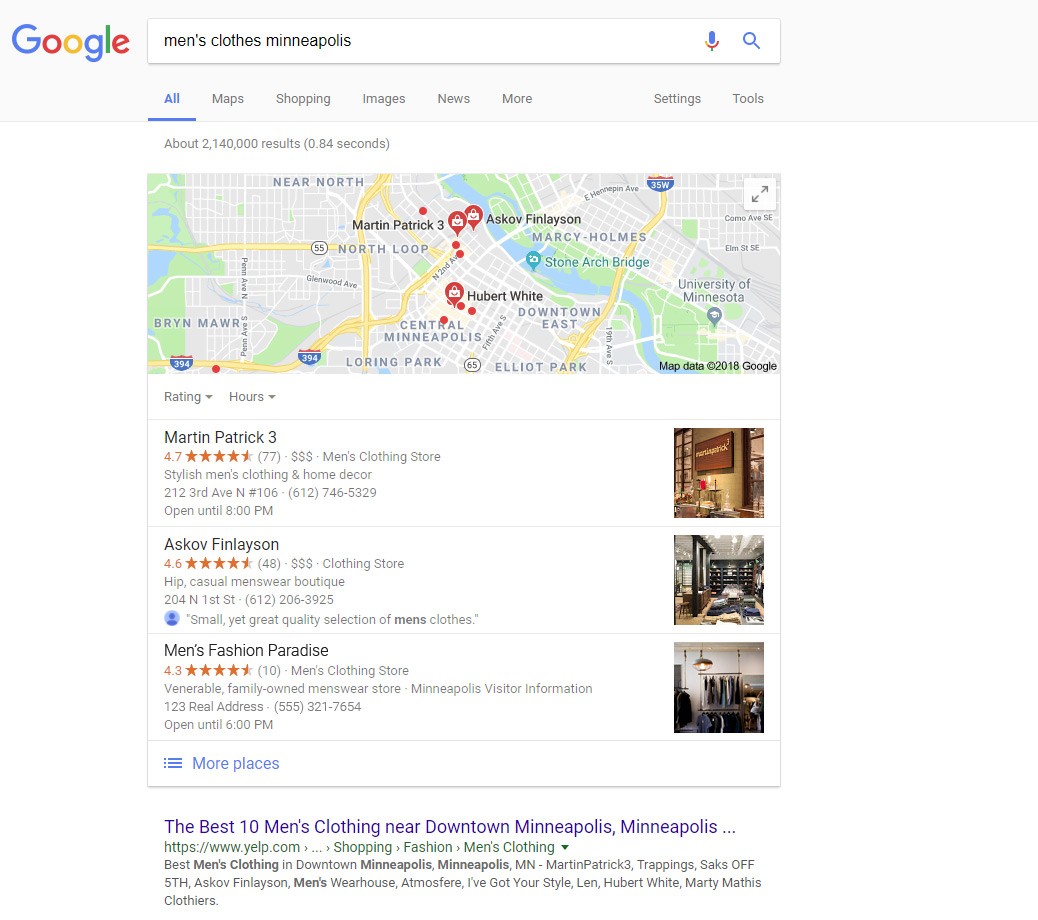
When you segment your keywords by location, you can see how widely your standings in the listings differ from one region to another. There could be a few reasons for this, including stronger competition in specific regions. Segmenting keywords by location is vital for businesses with a wide distribution network.
Any company can use segmentation like this to help them put together a more specific plan that helps them improve their visibility in the future. Compare your keywords by location, product line, branded and non-branded keywords, and others that are relevant to your niche. Here are some examples of segmentation for your Men’s Fashion Paradise online store:
Location keywords:
- men’s fashion los angeles
- men’s fashion new york
- men’s fashion minneapolis
Branded keywords:
- men’s fashion paradise
- men’s fashion paradise online store
- men’s fashion paradise suits
Fashion broad keywords:
- men’s shoes
- men’s jackets
- men’s casual
Fashion long-tail keywords:
- smart casual men’s clothes for work
- designer accessories for men
- affordable men’s wedding suits
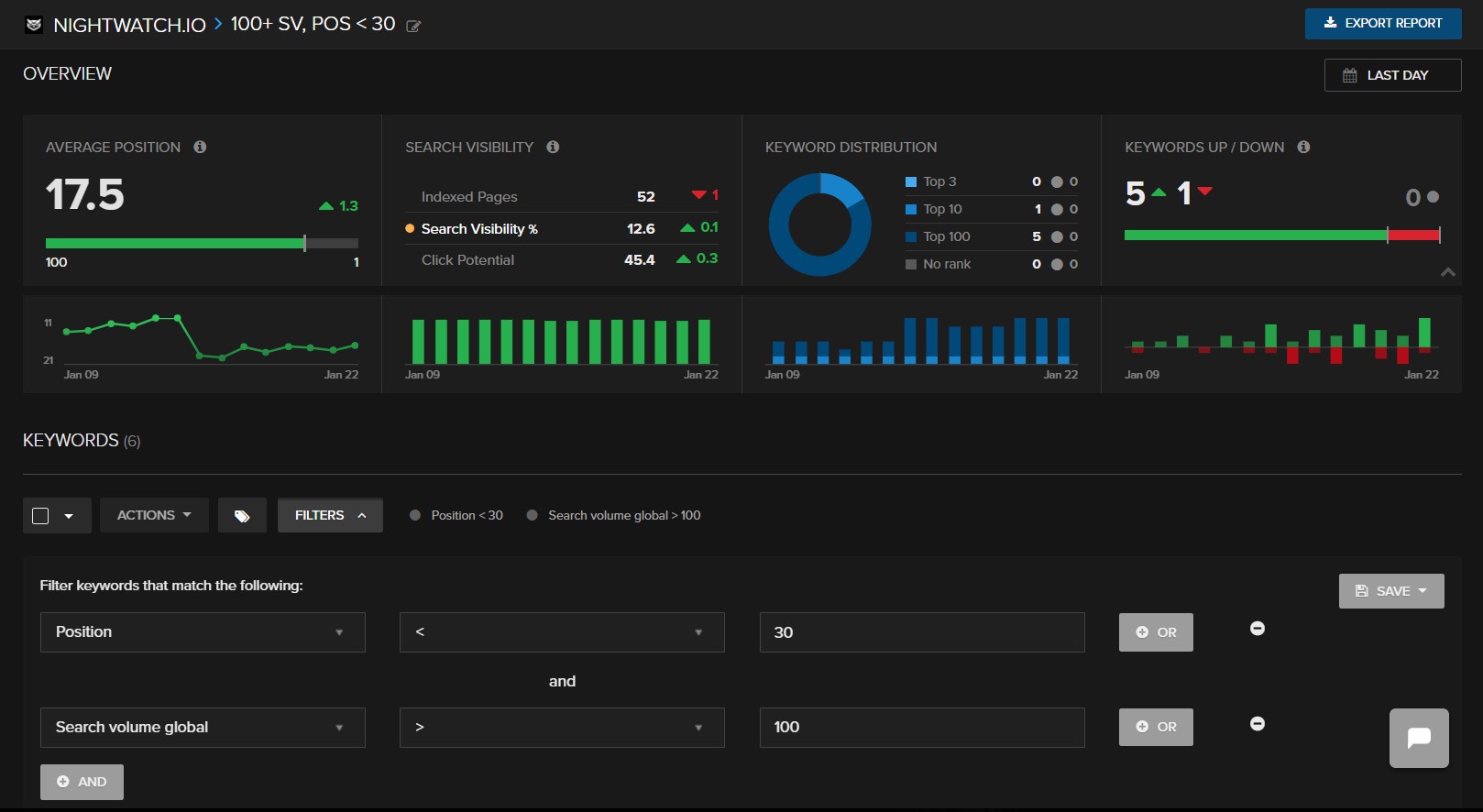
You can also segment keywords by traffic, tags, and search volume. Using this data, you can then compare how yours are performing versus your competitors.
3. Backlinks Tracking
The idea of backlinks is that they give more credibility to your site, which improves your ranking. Using your backlink tracking tool helps you to look for contextual backlinks and identify the ones that are suspicious, harmful, or make no sense. Nightwatch visualizes the data to help you focus on building a better strategy going forward.

The secret for the most efficient backlink tracking is in — once again — taking advantage of segmentation.
The effect of individual backlinks on your rankings is usually very subtle, but SEO segmentation can enable us to detect the impact with much higher sensitivity. As a result, we can understand which kind of backlinks have the most significant effect on specific segments of our websites. This way we can move forward and focus on acquiring backlinks that will have maximum impact on our site.
We could split backlinks into the following segments and observe if they follow the same trend:
- Outreach backlinks: These are the backlinks gained by guest posting and exchanging links with related and similar websites.
- Organic backlinks: These backlinks created voluntarily by other people.
- High, medium, and low-quality backlinks: These are the links pointing to our site from a website with a particular domain and page authority.
- Category backlinks: These links are pointing to a certain category on our site — for example, to running shoe products. Segmenting backlinks by a category or type in this way is one of the best practices to gain insight into the direct impact a certain backlink can have on our site.
4. Metrics Observation
There are fundamental metrics we all know about — keywords rankings, especially — but there are metrics that many of us tend to overlook. Here’s a brief breakdown of some of the most overlooked metrics you need to be tracking:
The distribution of your keywords
You can use your SEO tracking tool to see if the distribution of your top keywords is improving. The tool also lets you track how stable your rankings are in various ranges.
Average rank of keywords
This one is essential. If your average rank is going down, you need to rethink your keyword campaign. If it’s going up, consider double downing. Use your SEO rank tracker to discover how your position in the SERPs is improving overall. Track the metric over weeks, months, and years. For developers who need to integrate SERP data into custom dashboards or applications, a SERP API provides programmatic access to this data.
For better insights, break your keywords down into segments.
Average rank compared with competitors
We’ll cover this in more detail in the next section, but you can use your SEO tracker to compare your non-branded keywords with your rivals. This will allow you to see who is leading the market and who therefore has tactics you can replicate. It also lets you know how harder you need to try with your own efforts.
Indexed pages
Is your number of indexed pages increasing or decreasing? If it’s decreasing, it’s a sign that something is wrong. Indexed pages will go up in a healthy SEO campaign so keep an eye on this one to make sure you aren’t losing pages, and consequently visibility, on Google.
Search visibility and click potential
They’re both essential. If both metrics increase subtly over time, it means your SEO campaign is going well.
Daily clicks
If daily clicks are going down, it could mean your meta description or title tags are weak. Use this metric properly, and you can make the right adjustments that will improve your daily clicks rate.
5. Competitors Tracking
There’s competition in pretty much everything we do in life, including SEO. In online marketing, it’s essential that you keep track of your competitors’ efforts so that you can analyze and then improve upon what they’re doing.
For example, when you know the link profiles of your rivals, you’ve basically got access to relevant websites in your niche. In this way, you can start to build new relationships with website owners and bloggers that will get you more links.
It’s also important to track your competitor’s positions in the SERPs. If you’re competing for the same keyword and you’re a few places behind your rivals, you can then take action and build a better SEO campaign that will improve your ranking.
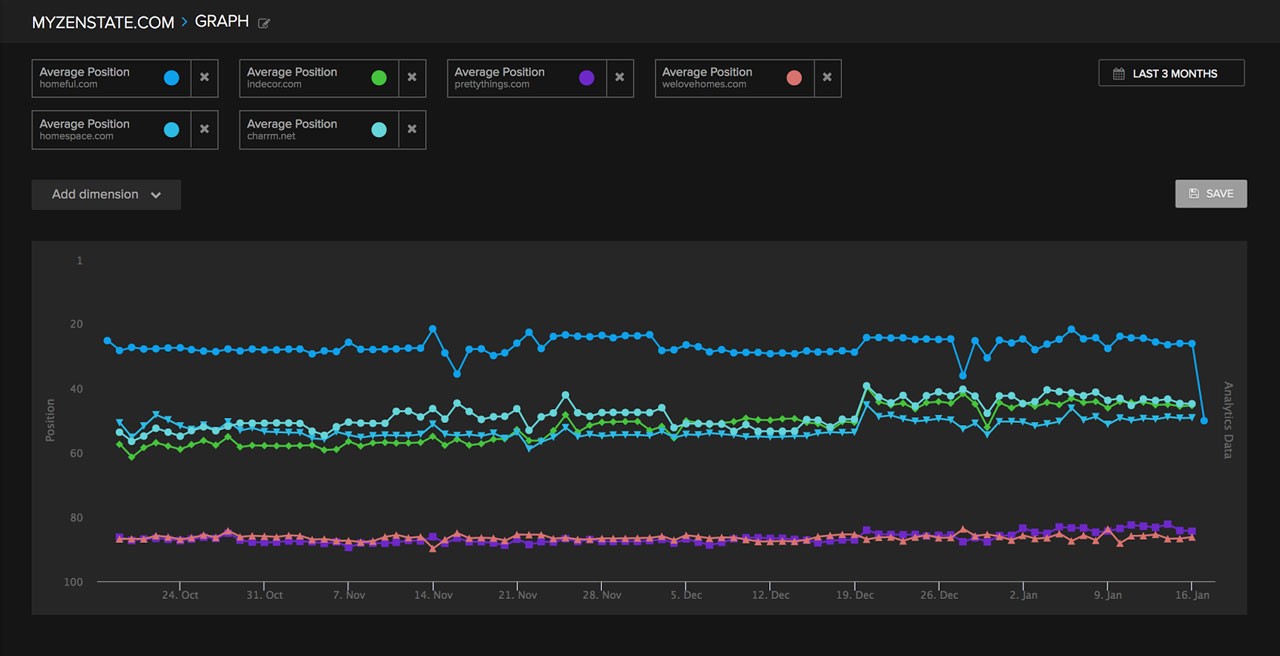
Referring back to what we mentioned earlier, you can use your SEO tracker to compare your segmented keywords with those of your competitors. This helps you to take a step back and see the bigger picture. If you don’t compare your performance with your competitors in this way, it’s tough to make the necessary adjustments that will improve your game.
6. SEO and Traffic Dashboards
Online marketers crave a seamless, easy-to-read dashboard that gives them an overview of their SEO campaigns. You can make your morning cup of coffee, open up your dashboard, and quickly take a look at your data before planning any tweaks to your campaign.
In Nightwatch, split our dashboard into three sections:
- Search visibility
- Traffic
- Backlinks
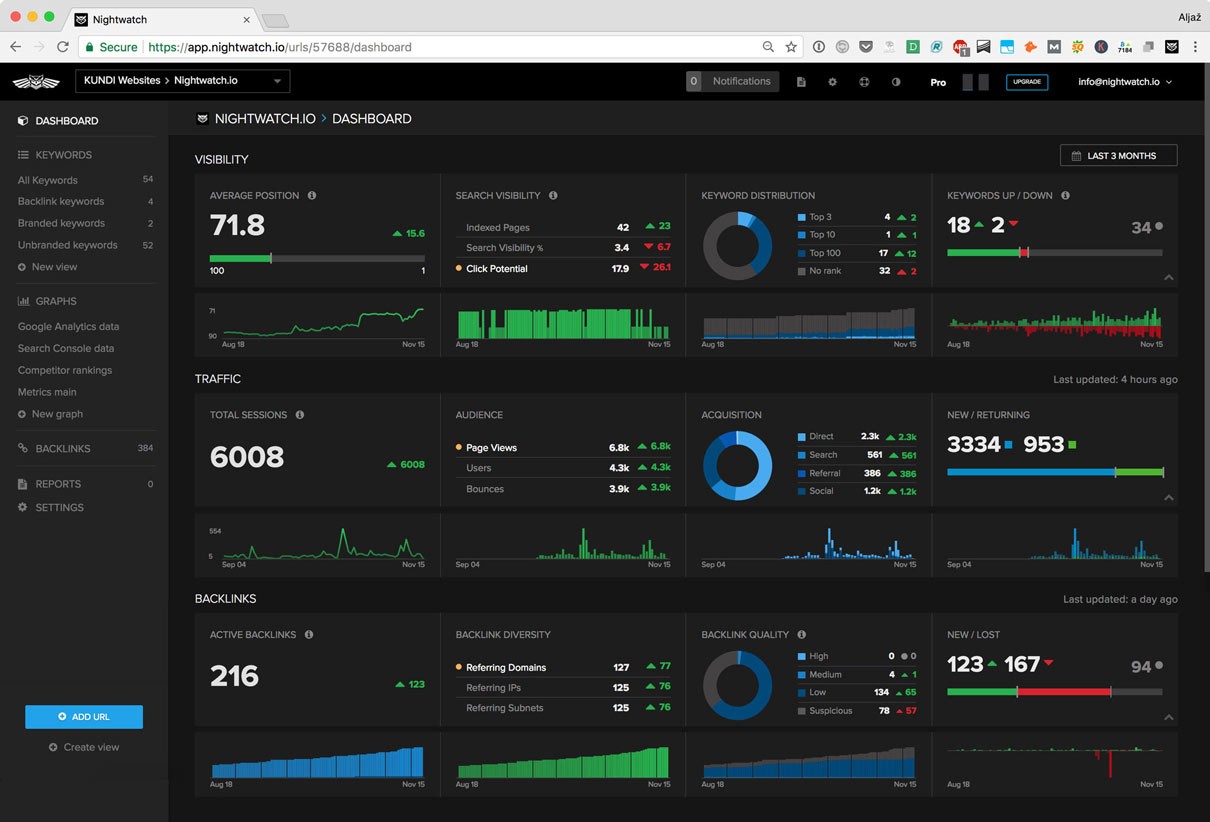
These are the top three most important sections in the elegantly crafted dashboard. Here you can check to see how your search visibility has changed, how your audience has engaged, and how many new backlinks you’ve acquired over the week.
7. Smart Notifications
Lastly, wouldn’t it be amazing if you could receive regular smart notifications that kept you in a loop with any changes to your metrics?
The best modern SEO trackers don’t just show metric data; they also send out smart notifications that bring you right up to date with spikes in your rankings, changes in indexed pages (whether or not the amount of pages indexed by Google has increased or decreased), new keyword opportunities, new backlink opportunities, lost backlinks, and much more. These notifications are delivered instantly and allow you to make quick changes.
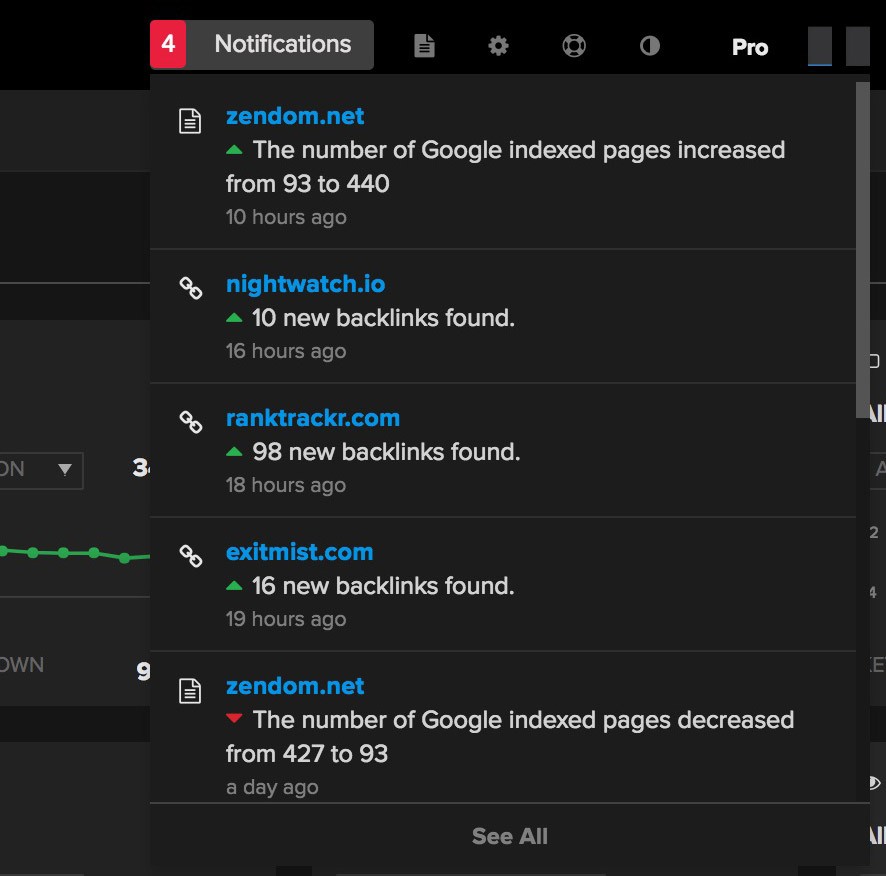
All in all, SEO tracking means that you’re being smart about the health of your website or business. Taking the time to learn more about your data and insights puts you in a position of power where you can then take your SEO strategy to the next level.
Indeed, SEO is all about refinement. Tweak, adjust, and adapt. And good luck!
Liked the piece? Don’t forget to share!
